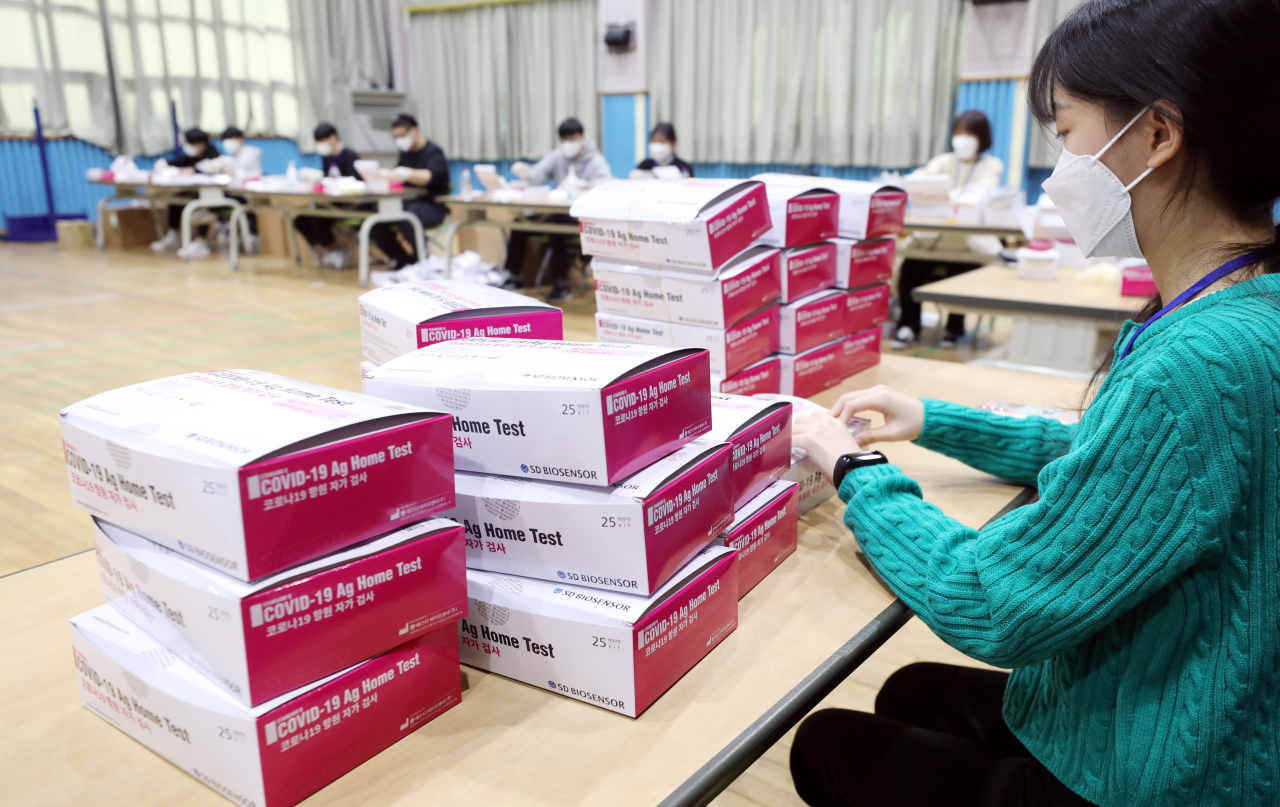Schools open up more to possibility of going online
Ministry takes step back with its ‘normalcy attendance’ measure
By Im Eun-byelPublished : Feb. 21, 2022 - 15:57

The Education Ministry on Monday recommended schools be more flexible with attendance policies in early March during a two-week transition period, dialing up an advisory for holding online classes if needed.
The announcement gives schools more flexibility from the ministry’s earlier guidelines for schools to go hybrid with online and offline classes, allowing schools to tweak attendance policies regardless of the rules during the first two weeks of the new semester.
“We are expecting the number of confirmed cases to rapidly increase in early March. Therefore, schools will be advised to change their attendance measures depending on the infectious disease control situation in the area,” an official from the ministry said during a press briefing held Monday. “Though the numbers may not meet the threshold, they can decide individually in cooperation with the education office.”
The official added that schools cannot go fully online just because there have been many complaints from students and parents.
Earlier this month, the ministry announced that schools can adopt a hybrid approach to classes if more than 3 percent of students are confirmed as infected with COVID-19 in a day or if the number of those who have been restricted from attending classes surpasses 15 percent.
While the ministry had said schools need not stick to the exact guidelines, it has repeatedly asked schools “to be cautious about switching to remote learning,” meaning to refrain from taking such measures.
It, however, explained Monday that the first two weeks of March will be designated as a transition period for schools to adapt to the new infectious disease control and prevention system, and schools will be allowed to make the decision on their own.
Also, students will use a self-diagnosis application on mobile phones from Feb. 28 to record and share their health condition with schools. Rapid antigen testing kits will be given out by schools on March 2.
To support the infectious disease control and prevention plans at schools for the new semester, the ministry and education offices across the nation will transition into an emergency response system from Monday to the end of March, holding weekly meetings to check schools’ response to COVID-19.
“Though the number of confirmed cases in schools is expected to rapidly increase in March, the number of patients in serious condition (amid the spread of the omicron variant) has been relatively very low compared to the delta variant situation,” Education Minister Yoo Eun-hye said during a meeting held Monday, adding that schools should swiftly respond to the virus situation and work with emergency response teams at the education offices.
“There are two major agendas for the new semester: building up a test system with self-testing kits and polymerase chain reaction tests, and having schools run flexibly. The ministry and educational offices will work on supporting schools to adapt to the two agendas,” Yoo said.
By Im Eun-byel (silverstar@heraldcorp.com)












![[Today’s K-pop] BTS pop-up event to come to Seoul](http://res.heraldm.com/phpwas/restmb_idxmake.php?idx=644&simg=/content/image/2024/04/17/20240417050734_0.jpg&u=)





![[KH Explains] Hyundai's full hybrid edge to pay off amid slow transition to pure EVs](http://res.heraldm.com/phpwas/restmb_idxmake.php?idx=652&simg=/content/image/2024/04/18/20240418050645_0.jpg&u=20240418181020)

![[Today’s K-pop] Zico drops snippet of collaboration with Jennie](http://res.heraldm.com/phpwas/restmb_idxmake.php?idx=642&simg=/content/image/2024/04/18/20240418050702_0.jpg&u=)